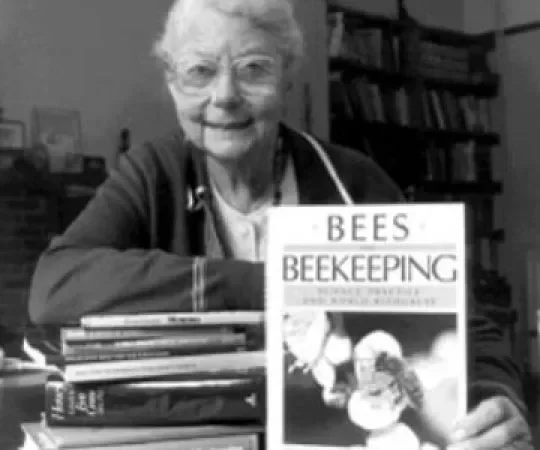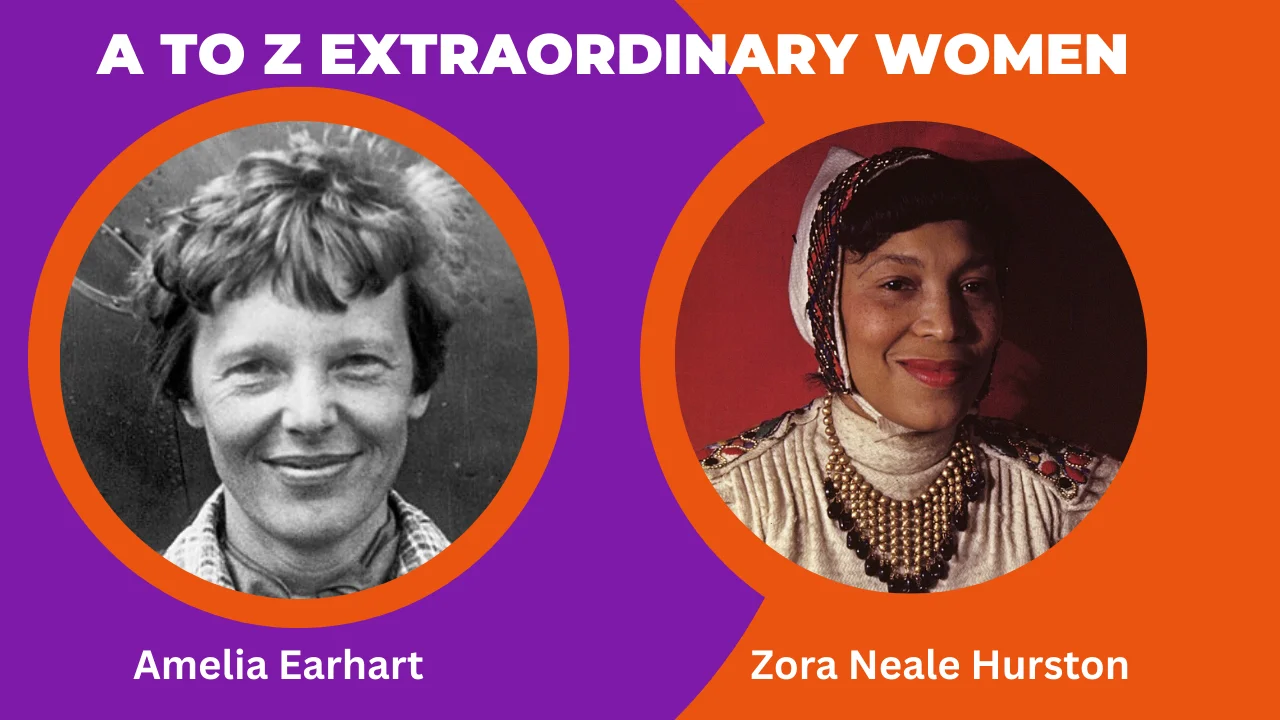The Queen of Bees: How Eva Crane Transformed Beekeeping
07 Mar 2025

Eva Crane left a profound mark on the world of beekeeping. A scientist by training, Crane dedicated her life to the study of bees, their behavior, and their relationship with human civilization.At a time when beekeeping was often considered a rural or folk practice, she brought rigorous scientific research into the field, forever changing how we understand and manage bees.
Her work spanned decades and continents, and her contributions continue to influence both academic research and practical beekeeping today.
This article delves into her fascinating journey, exploring her early life, career, achievements, personal struggles, and enduring legacy.

A Scholar Turned Beekeeper: Eva Crane’s Early Life and Academic Pursuits
Born as Ethel Eva Widdowson on June 12, 1912, in London, England, Eva Crane grew up in a time of immense scientific discovery and global upheaval.
From a young age, she exhibited a keen interest in learning, which led her to pursue higher education in mathematics and physics.
book
She earned a doctorate in nuclear physics from the University of London, a remarkable achievement at a time when women in science were still a rarity.
Crane’s transition from physics to beekeeping was unexpected. During World War II, her husband, James Crane, gifted her a beehive as a means of supplementing their wartime food rations.
What started as a simple curiosity quickly turned into a lifelong passion. She became fascinated by the complexity of bee societies and the vital role they played in agriculture and ecosystems.
Her scientific mind saw an opportunity to apply rigorous study to an ancient practice, and this marked the beginning of her groundbreaking career in apiculture.
Lessons: Don’t be afraid to chase your interest – Even after obtaining a master’s and PhD in mathematics and physics, Crane was never afraid to abandon the field and chase her true calling. This is a perfect example of always being bold enough to chase your dreams and interests no matter what.
Revolutionizing Beekeeping: Eva Crane’s Scientific Contributions
Unlike traditional beekeepers who relied on folk wisdom and experience, Crane approached beekeeping with a researcher’s precision.
She delved into historical texts, conducted extensive field research, and meticulously documented beekeeping practices from cultures around the world.
Her scientific approach helped bridge the gap between traditional beekeepers and modern agricultural science.

In 1949, she founded the Bee Research Association, which later became the International Bee Research Association (IBRA). This organization served as a hub for scientific research on bees and beekeeping, fostering a global community of researchers, farmers, and conservationists. Through IBRA, she published numerous papers, research findings, and educational materials that shaped contemporary beekeeping.
Her fieldwork was unparalleled. Crane traveled extensively, visiting over 60 countries to study beekeeping practices in diverse climates and cultures.
She was one of the first researchers to document how different environments influenced bee behavior and hive management techniques.
Her studies not only contributed to scientific knowledge but also helped improve beekeeping practices worldwide, particularly in developing countries where bees played a crucial role in agriculture and food security.
Lesson: Dedication- Crane was dedicated and committed to research associated with bees. With her dedication, Crane achieved so much in the field. She also made groundbreaking impacts.
Dr. Crane wrote some of the most important books on bees and apiculture” and noted “Her older sister, Elsie Widdowson, who never retired either, helped revolutionize the field of nutrition, showing similar energy chasing seals on ice floes to study their eating habits.” – New York Times.
The Written Legacy: Eva Crane’s Impactful Publications
One of Crane’s most enduring contributions was her prolific writing. She authored several authoritative books on bees and beekeeping, many of which remain essential reading for scientists and beekeepers alike.
Her magnum opus, The World History of Beekeeping and Honey Hunting (1999), is a comprehensive examination of beekeeping traditions across time and geography.
This meticulously researched book traces the human relationship with bees from prehistoric cave paintings to modern industrial beekeeping.
It is considered one of the most important works in the field, combining anthropology, biology, and historical research.
Another influential book, Bees and Beekeeping: Science, Practice, and World Resources (1990), provides an in-depth look at the scientific and practical aspects of beekeeping.
It became a crucial resource for both novice and expert beekeepers, offering insights into hive management, bee diseases, and the environmental impact of beekeeping practices.
Through these publications, Crane helped establish beekeeping as a legitimate field of scientific inquiry. Her work provided a solid foundation for future research and inspired countless individuals to take a more systematic approach to apiculture.

Overcoming Challenges: Eva Crane’s Determination in a Male-Dominated Field
Despite her achievements, Crane faced numerous challenges in her career. As a woman in both the male-dominated fields of physics and beekeeping, she had to overcome skepticism and resistance from her peers.
In the mid-20th century, scientific research was still largely controlled by male academics, and beekeeping was often viewed as a traditional or rural occupation rather than a field requiring intellectual rigor.
Crane’s persistence and intellect, however, won her widespread respect. Her meticulous research and vast field experience made her an undeniable authority. She was known for her tireless work ethic, often spending months traveling to remote locations to gather first hand data.
Her commitment to scientific accuracy and her ability to communicate complex information in an accessible manner allowed her to break barriers and earn recognition in both scientific and beekeeping communities.
Her personal life also reflected her resilience. After her husband’s passing in 1978, she continued her work with even greater dedication, using her research to promote global beekeeping sustainability.
Her ability to balance personal loss with professional commitment serves as an inspiring example of perseverance and passion.
The Everlasting Buzz: Eva Crane’s Legacy and Influence Today
Eva Crane’s impact on the world of beekeeping remains profound. Her research paved the way for modern scientific approaches to bee conservation, sustainable apiculture, and agricultural pollination practices.
Today, her work continues to inspire beekeepers, scientists, and environmentalists worldwide.
The International Bee Research Association, which she founded, still thrives as a leading organization in bee research. Its journal, Bee World, remains a valuable resource for ongoing studies in apiculture.
Many of her books and articles are still referenced in academic settings, ensuring that her knowledge and insights continue to educate future generations.
In an era where bee populations are under threat due to climate change, habitat loss, and pesticide use, Crane’s work is more relevant than ever.
Her advocacy for scientific beekeeping methods and her emphasis on understanding the ecological role of bees have become crucial in today’s efforts to protect pollinators.
Conclusion
Eva Crane was much more than a scientist or beekeeper—she was a visionary who transformed an ancient practice into a respected field of scientific study.
Her dedication, intellectual curiosity, and relentless pursuit of knowledge helped shape the way we understand and care for bees today.
Her story is a testament to the power of passion and perseverance. From nuclear physics to apiculture, her journey proves that sometimes the most unexpected paths lead to the most extraordinary contributions.
As we continue to face challenges in bee conservation, Crane’s legacy serves as a guiding light, reminding us of the vital role that science, dedication, and a deep love for nature can play in shaping a better world.
To learn more about Eva Crane, read this book by herself – A Book of Honey




